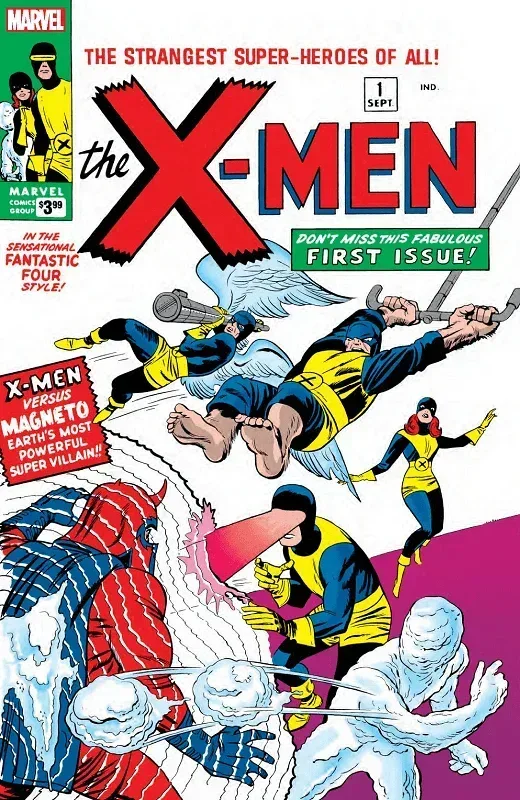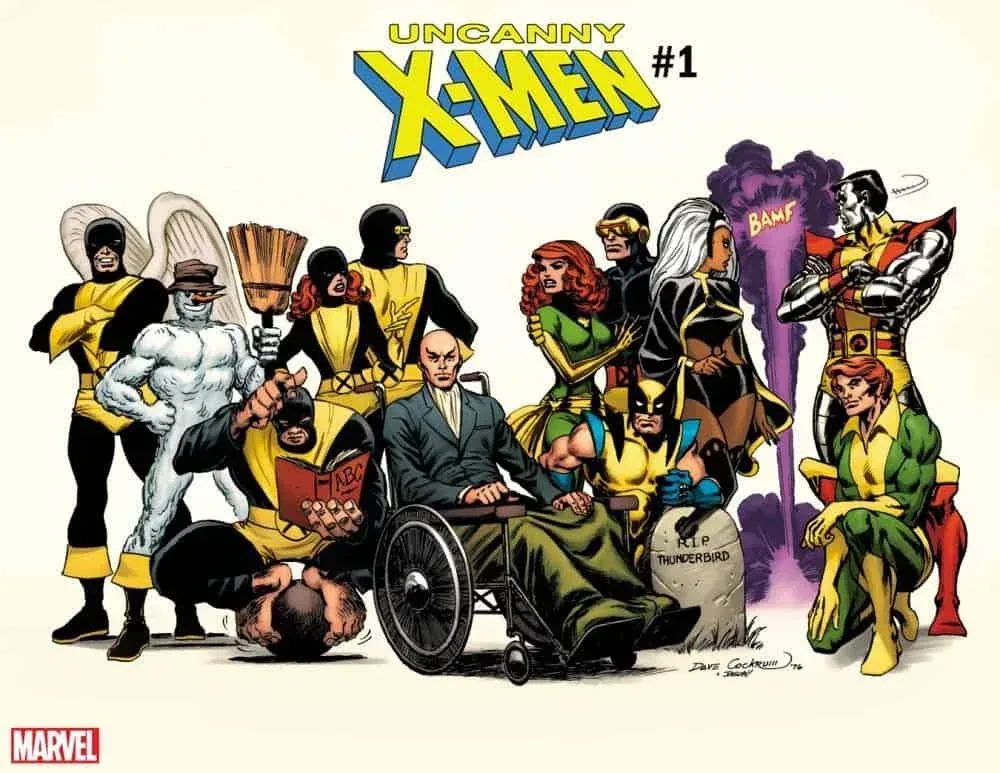
The 1980s were a very active and important period in the development of comic books. Frank Miller’s 1986 Batman comic marked the beginning of the Modern Age of Comic Books, which was a period of radical change in the industry. Today’s story began a bit earlier, in 1978, as we have decided to tell you a bit about the genesis of the Uncanny X-Men title that marked the franchise for several decades to come.
Based on the general meaning of the word, we assume it was a reference to their superhuman and/or supernatural characteristics as we observed them in the comics. Uncanny X-Men was the title of the original X-Men comic from 1978 until the series’ end in 2019.
In today’s article, I am going to reveal everything there is to know about why the X-Men were called “uncanny” from 1978 until 2019. You’re going to find out the meaning of the word, the circumstances that led to the change in name back in 1978, and whether there is a difference between this title and the original one that ran from 1963 to 1978. Enjoy!
What is the meaning of “uncanny” in Uncanny X-Men?
The term “uncanny” is not something that is quite often used in the English language, but it’s not a completely unknown word. It is generally used to describe something strange or weird, with the famous Merriam-Webster Dictionary giving the following definitions of the adjective:
- seeming to have a supernatural character or origin: EERIE, MYSTERIOUS
- being beyond what is normal or expected: suggesting superhuman or supernatural powers (an uncanny sense of direction)
- chiefly Scotland: SEVERE, PUNISHING
Some synonyms for the word, as listed by Merriam-Webster, are arcane, cryptic, deep, enigmatic (also enigmatical), impenetrable, inscrutable, mysterious, mystic, occult.
As you can see, each of these definitions (okay, probably not the Scottish one, but the X-Mene weren’t really Scottish, to begin with) and synonyms can, in a way, be attributed to the X-Men, so it shouldn’t really come as a surprise that, under Chris Claremont’s supervision, the X-Men became uncanny.
The X-Men were, of course, called “uncanny” because of their very nature. As mutants, the X-Men came in all shapes and sizes, which was certainly something that puzzled people, both in-universe and outside of the stories. They were, of course, popular but that never really meant that they stopped being mysterious or, at times, even eerie, especially when you consider that the 1980s brought us such stories as the (in)famous “Dark Phoenix” saga, which is a pivotal moment in the evolution of the X-Men.

When did X-Men become Uncanny X-Men?
The X-Men comic book debuted in September 1963 with #1, written and illustrated by Stan Lee and Jack Kirby, respectively. It introduced Warren Worthington III (Angel), Hank McCoy (Beast), Scott Summers (Cyclops), Robert Drake (Iceman), and Jean Grey (Marvel Girl) as the five “original” X-Men, also introducing their mentor Charles Xavier (Professor X) and their archenemy, Erik Lehnsherr (Magneto). The series was simply titled X-Men and ran under that banner until 1978.
Editors and writers changed and the X-Men went through a rough patch from 1970 until 1975, when no new stories were published, with the series focusing on reprints of old stories. Things changed in 1975 when Giant-Size X-Men #1 relaunched the series and new stories began to appear in printed issues.
Now, why is this special issue so important? Written by Len Wein and illustrated by Dave Cockrum, Giant-Size X-Men #1 had a banner stating “Stan Lee Presents: The Uncanny X-Men!” The title remained the same, but it seems that the first usage of the adjective “uncanny” in association with the X-Men appeared in 1975, although at the time, it was just a one-off description of the characters and it had no further implications. They could’ve gone with any other adjective, but Wein once more proved his creative genius.
Three and a half years later, in October 1978, #114 of the X-Men title was published by Marvel under a new title – Uncanny X-Men. The continuity remained the same, but the series received a new title under which it was published until 2019.
What’s the difference between X-Men and Uncanny X-Men?
Well, from what I figured after going through the history of Marvel Comics and by reading the comic books themselves, there is absolutely no difference between the X-Men and Uncanny X-Men titles. Why Marvel actually rebranded the series remains a mystery, but it was really just a title change that had no actual implications for the plot and the characters themselves.
There was even an advertisement by Cockrum that appeared not long before #114 that stated: “Like the old X-Men? You’ll love the new X-Men, still uncanny after all these years!” It seems that Marvel was preparing for the change several months before it was actually made public so we cannot really state that it was part of some large shake-up or anything like that, it was just a simple change that wasn’t really one in the first place.
Is Uncanny X-Men canon?
Finally, there is the question of the Uncanny X-Men’s canon status, although that question has partially been answered in the previous section, where it was stated that there is absolutely no difference between the X-Men and the Uncanny X-Men titles, save for the titles themselves.
This, of course, leads us to a logical conclusion that the Uncanny X-Men are undoubtedly canon. In fact, the title was – for years – the main X-Men comic book, as the next iteration of the X-Men title appeared in 2010, 32 years after Uncanny X-Men debuted.
The title was one of the bestselling American comics during the 1980s and it contained stories (e.g. “Dark Phoenix”) that helped shape the X-Men franchise for decades to come. The popularity of the series is also witnessed in other Uncanny titles that appeared later on (like Uncanny X-Force or Uncanny Avengers), with the adjective meaning that the stories would include the X-Men, regardless of the main superhero or superhero group (like, in the case of the Uncanny Avengers, which contained stories that united the Avengers and the X-Men).
